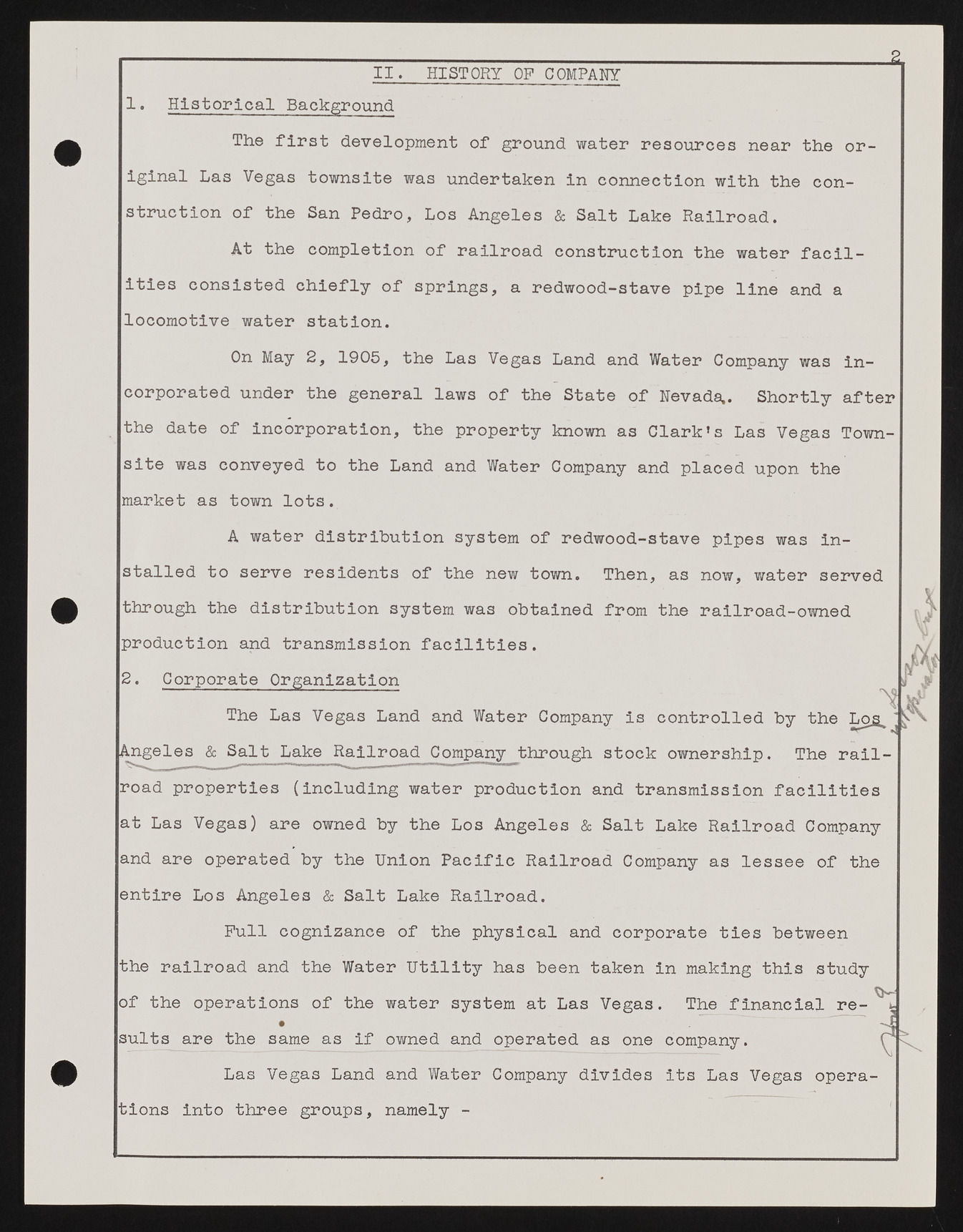Copyright & Fair-use Agreement
UNLV Special Collections provides copies of materials to facilitate private study, scholarship, or research. Material not in the public domain may be used according to fair use of copyrighted materials as defined by copyright law. Please cite us.
Please note that UNLV may not own the copyright to these materials and cannot provide permission to publish or distribute materials when UNLV is not the copyright holder. The user is solely responsible for determining the copyright status of materials and obtaining permission to use material from the copyright holder and for determining whether any permissions relating to any other rights are necessary for the intended use, and for obtaining all required permissions beyond that allowed by fair use.
Read more about our reproduction and use policy.
I agree.Information
Digital ID
Permalink
Details
Member of
More Info
Rights
Digital Provenance
Publisher
Transcription
II. HISTORY OF COMPANY 1. Historical Background The first development of ground water resources near the or-iginal Las Vegas townsite was undertaken in connection with the construction of the San Pedro, Los Angeles & Salt Lake Railroad. At the completion of railroad construction the water facilities consisted chiefly of springs, a redwood-stave pipe line and a locomotive water station. On May 2, 1905, the Las Vegas Land and Water Company was incorporated under the general laws of the State of Nevada,. Shortly after the date of incorporation, the property known as Clark’s Las Vegas Town site was conveyed to the Land and Water Company and placed upon the market as town lots. A water distribution system of redwood-stave pipes was installed to serve residents of the new town. Then, as now, water served through the distribution system was obtained from the railroad-owned production and transmission facilities. 2. Corporate Organization The Las Vegas Land and Water Company is controlled by the Loj^j£ Angeles & Salt Lake Railroad Company through stock ownership. The railroad properties (including water production and transmission facilities at Las Vegas) are owned by the Los Angeles & Salt Lake Railroad Company and are operated by the Union Pacific Railroad Company as lessee of the entire Los Angeles & Salt Lake Railroad. Pull cognizance of the physical and corporate ties between the railroad and the Water Utility has been taken in making this study of the operations of the water system at Las Vegas. The financial re-suits are the same as if owned and operated as one company. Las Vegas Land and Water Company divides its Las Vegas opera-ions into three groups, namely - JJ V\l

